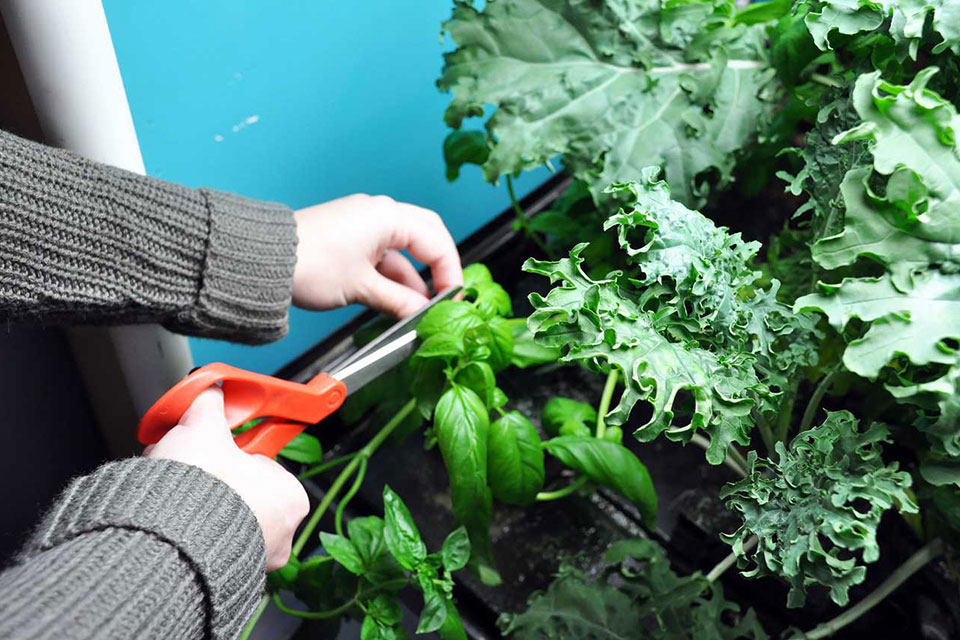Biology majors partner with nonprofit to build sustainable farming system

Biology majors Victoria Johnson ’19 and Lindsey Florent ’19 credit their technical training in the sciences and their humanities coursework for empowering them to put their passion for community service into action by building an indoor urban farming system that will make a sustainable difference for underserved communities in Massachusetts.
The students, who are both chemistry minors, formed a partnership with Gifts to Give in Acushnet, Massachusetts as part of their Service Plunge project focusing on environmental and hunger issues. Their idea was to put their knowledge about health, nutrition and hydroponics to work by building a sustainable farming system inside the nonprofit’s downtown warehouse.
“The seeds were planted and placed in the system on Feb. 9 and will spend the next few months taking root, growing and being harvested as the first produce for their soup kitchen,” Johnson said. “As natives to the [New Bedford] area, we hope that this work will help leave a positive mark on our city and hopefully expand to local schools. It has been quite the labor of love but one in which we are incredibly humbled and inspired by. We cannot wait to continue to see this endeavor grow.”
The partnership formed last summer when Johnson and Florent sat down with Gifts to Give founder and CEO Jim Stevens. Stevens expressed his desire to create a startup soup kitchen, and the Salve students presented their vision of creating a fully operational hydroponic farm in which fresh produce could be grown in an environmentally sustainable manner and managed by volunteers.
“We evaluated the vision, made a blueprint of the system, and plotted out the cost with the advisement of GrowRI and Dr. Jameson Chace (professor of biology and biomedical sciences),” Johnson said.
This winter, the students completed the assembly of an enclosed area within the warehouse containing two multi-level hydroponic systems, complete with state-of-the-art materials, measurement devices, nutrients and, of course, plants.
“This is a city in which we believed hydroponics could thrive and provide underserved regions with healthy, easy to obtain foods while also teaching individuals how to properly care for and maintain their own produce,” Johnson said. The system will serve not only as a food source for the agency’s soup kitchen, but also as an educational opportunity for the thousands of families served by Gifts to Give.
“Making the decision to take courses based in the humanities at Salve allowed us to focus on activism and the critical concerns of mercy,” Johnson said. “And even more so, it sparked our interest in serving the local community.” One course in particular, The Sociological Imagination, taught by Dr. Laura O’Toole, explored the issue of healthy food deficits in underserved regions.
Both students were introduced to the hydroponics lab on Salve’s campus as freshmen in Chace’s general biology class and have since immersed themselves in hydroponic-based research, in teaching local school communities how to grow produce hydroponically, and in volunteering in the lab to help maintain the growth systems.

